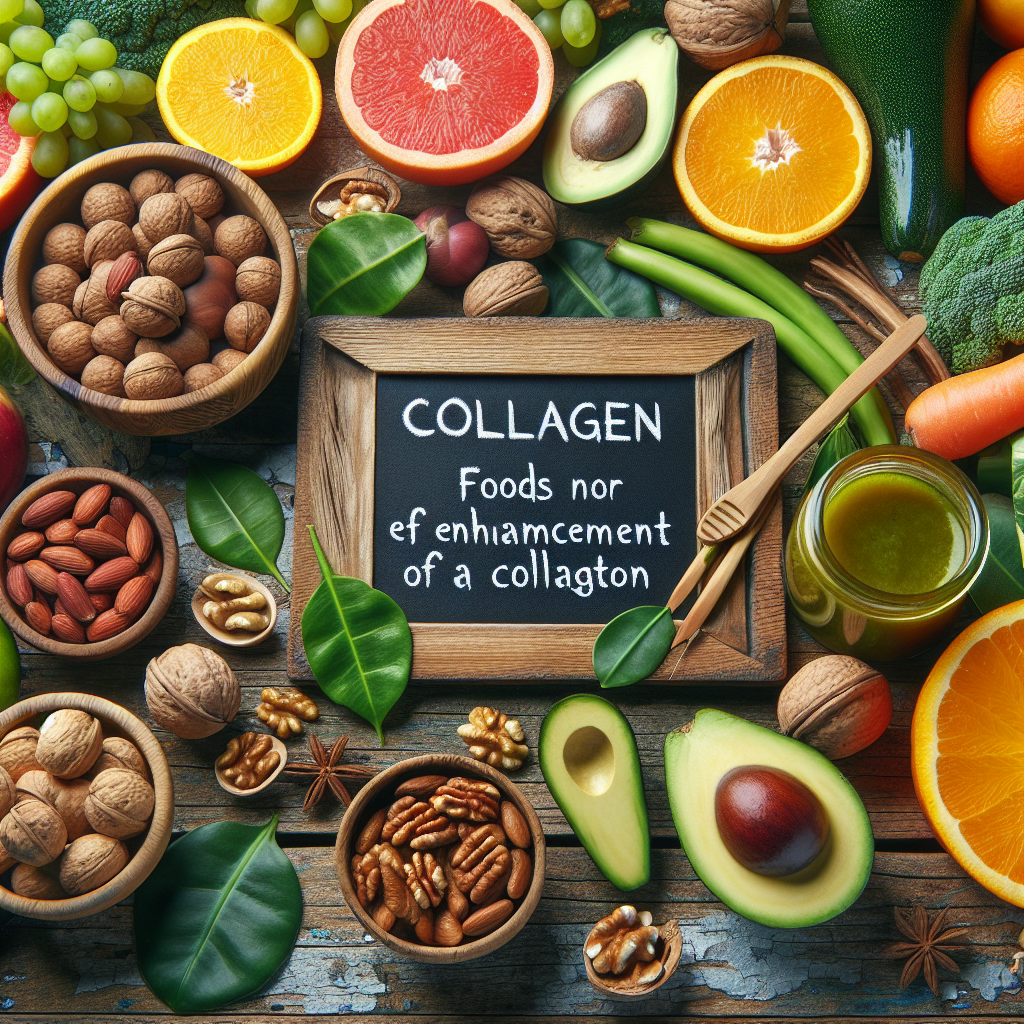Collagen is the most abundant protein in the human body, responsible for maintaining skin elasticity, joint health, and strong hair and nails. As we age, collagen production naturally declines, leading to wrinkles, joint pain, and weaker connective tissues. Fortunately, certain organic foods can help stimulate collagen synthesis naturally. By incorporating these nutrient-rich foods into your diet, you can support your body’s ability to produce collagen and maintain a youthful appearance and overall vitality.
Why Collagen Matters for Health and Beauty
Collagen acts as a structural scaffold in the body, providing strength and elasticity to tissues. It is found in skin, bones, tendons, ligaments, and cartilage. The body produces collagen using amino acids, vitamin C, zinc, and copper. When collagen levels drop, visible signs of aging appear, including fine lines, sagging skin, and brittle nails. Joint pain and stiffness may also occur due to reduced cartilage support.
The Role of Vitamin C in Collagen Production
Vitamin C is essential for collagen synthesis, as it helps convert proline and glycine into stable collagen fibers. Without adequate vitamin C, the body struggles to produce and maintain collagen. This is why vitamin C deficiency leads to scurvy, a condition characterized by weakened connective tissues, bleeding gums, and poor wound healing.
Top Organic Foods That Boost Collagen Naturally
Adding these organic, collagen-supporting foods to your diet can help enhance your body’s natural production of this vital protein.
1. Citrus Fruits and Berries
Citrus fruits like oranges, lemons, and grapefruits are packed with vitamin C, a critical nutrient for collagen synthesis. Berries, especially strawberries, raspberries, and blueberries, are also rich in antioxidants that protect collagen from damage caused by free radicals.
2. Bone Broth
Organic bone broth is an excellent source of collagen peptides, glycine, and proline—key building blocks for collagen formation. Simmering bones for long periods releases these nutrients, making them bioavailable for absorption.
3. Leafy Greens
Dark leafy greens like spinach, kale, and Swiss chard contain chlorophyll, which has been shown to increase procollagen production—the precursor to mature collagen fibers. They are also high in vitamin C and antioxidants.
4. Avocados
Avocados provide healthy fats and vitamin E, which work synergistically with vitamin C to protect skin cells from oxidative stress. The oleic acid in avocados also supports skin hydration and elasticity.
5. Eggs
Egg whites contain proline and glycine, two amino acids necessary for collagen synthesis. The yolk is rich in sulfur, another essential nutrient for collagen production.
6. Garlic
Garlic is high in sulfur, which helps stabilize collagen fibers and prevent their breakdown. It also contains taurine and lipoic acid, which support tissue repair.
7. Nuts and Seeds
Almonds, walnuts, chia seeds, and flaxseeds provide copper, zinc, and omega-3 fatty acids, all of which play a role in collagen formation and skin health.
Additional Collagen-Boosting Nutrients
Beyond specific foods, certain nutrients are crucial for optimal collagen production:
Zinc and Copper
Zinc activates proteins needed for collagen synthesis, while copper helps form strong collagen and elastin fibers. Foods like pumpkin seeds, cashews, and lentils are excellent sources.
Omega-3 Fatty Acids
Omega-3s help maintain skin elasticity and reduce inflammation, which can accelerate collagen breakdown. Fatty fish like salmon, sardines, and mackerel are ideal sources.
Lifestyle Tips to Support Collagen Production
While diet plays a significant role, lifestyle choices also impact collagen levels.
Stay Hydrated
Collagen thrives in hydrated environments. Drinking plenty of water helps maintain skin plumpness and supports joint lubrication.
Limit Sugar and Processed Foods
Excess sugar causes glycation, a process that damages collagen fibers and accelerates aging. Reducing processed foods and refined sugars helps preserve collagen.
Protect Skin from Sun Damage
UV radiation breaks down collagen, leading to premature wrinkles. Wear sunscreen and protective clothing to minimize sun-induced collagen loss.
Conclusion
Incorporating collagen-boosting organic foods like citrus fruits, bone broth, leafy greens, and nuts into your diet can enhance your body’s ability to produce collagen naturally. Combined with a healthy lifestyle, these nutrient-dense foods help maintain youthful skin, strong joints, and overall well-being.
